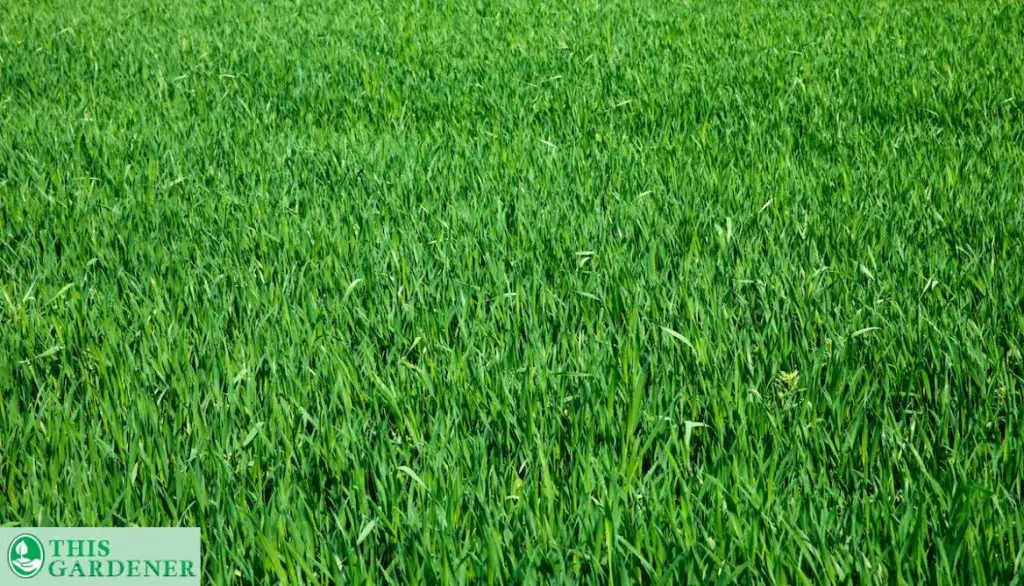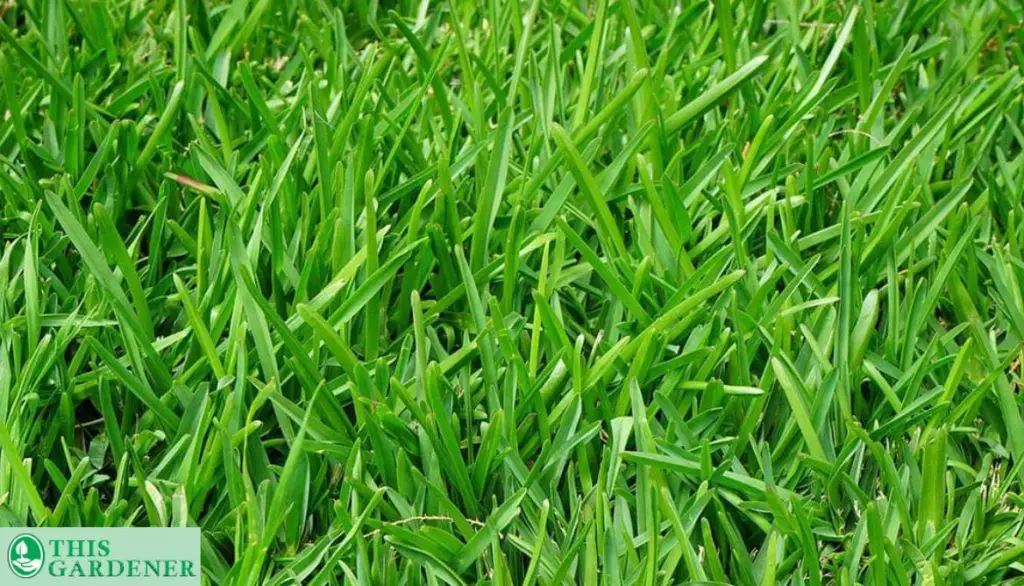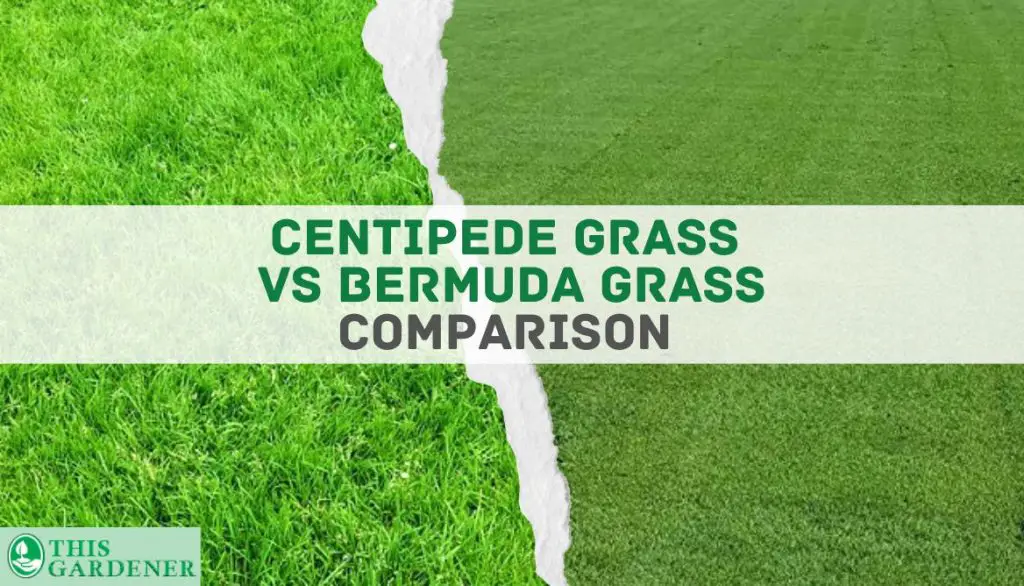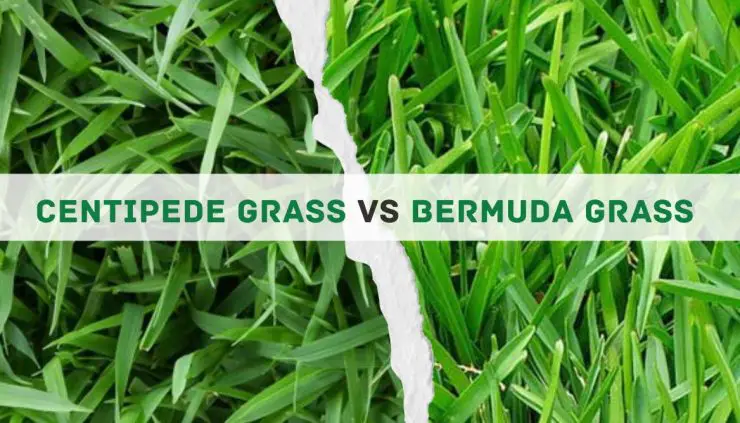The centipede grass vs bermuda grass argument is a very long and technical topic. But we can exactly point out who the winner and loser are with careful observation. If you are a homeowner and you planting bermuda and centipede grass then you are at the right place.
While both kinds of grass have their own unmatched advantages, bermuda grass or centipede grass may have some added Pros that make them a winner. Both are warm season grasses but bermuda grass becomes totally dormant and even dies in cold seasons. While the other does not.
Also, you can expect more maintenance when growing bermuda grass which is a warm season grass. On the other hand, centipede is a very low-maintenance grass seed. It also outgrows weeds and can kill many weed species that can grow on your lawn.
So, if I were a homeowner and wanted that perfect lawn then my choice would be centipede grass. Although, you can mix centipede and bermuda together for a perfect combo.
Contents
A Quick Comparison of Centipede grass vs Bermuda grass
If we compare the grass types and you are planting bermuda grass on your lawn or want a bermuda grass lawn in your home then you better keep in mind some of the strong features that both types of grass have. Let’s have a look by doing a comparative study:
Centipede grass and bermuda are not suited for shade and take the full-on heat of the sun. These grasses are heat tolerant and can survive direct sunlight and high temperatures.
But they do have their own individual strong aspects that make them unique. For example, both are warm season grasses but bermuda grass goes dormant during winter and centipede grass does not.
Yes, it needs a lot of water to grow while bermuda is drought tolerant. And you can expect it to be a little tolerate shade grass type while bermuda cannot tolerate shade at all.
Key Differences Between Centipede grass vs Bermuda grass
The most known differences between both kinds of grass are as follows:
Parameters | Centepide Grass | Bermuda Grass |
Tempreture | Warm | Warm |
Shade tolerant | No | No |
Water | 1.25” per week | 1” per week |
Sunlight | 6-7 hours | At least 6 hours |
Traffic torelance | Very little | High |
Salt tolerance | Average | Average |
Soil pH | 5.0-6.0 | 5.8-7.0 |
What is Centipede grass?

It is the grass that grows slowly and it is best grown in sandy soil. It grows best during warm climates and it is considered the best grass choice for the lawn. If you have grown this type of grass on your lawn then you can expect that the lawn turns green and grass sustains itself easily.
Identifying Centipede grass
Some very notable features of this grass type are as follows:
- Light green in color
- Narrow leaves
- Lance shaped leaves
- It has blunt tips
- Produces small sized white colored flowers in the summer season
- It shows a rust-colored kind of tinge during the fall or winter season
What is Bermuda grass?

Bermuda grass is a warm season grass that is famous for lawn frequently. Bermuda grass characteristics make it one of the most widely chosen grass types. It can easily survive in hot climates, it is resistant to low water conditions, and provides excellent support to other grasses if grown with them.
Identifying features of Bermuda grass
This grass can be identified very easily as it has some very easy features:
- It has a very unique brownish-purple color
- It has a hairy texture
- The grass has a coarse texture
- It has above-ground roots called stolons
- One of the most distinctive features is the seed head that looks like a bird’s feet
Comparing Centipede grass vs Bermuda grass: 10 differences

If you are comparing both centipede grass and bermuda then it is most likely that you would find similarities and differences between both. Since both are warm-season grass then there is most likely that many of the characteristics remain the same. But they both have unique features.
Bermuda grass spreads through stolons and can be seen in bunched form when they grow. While centipede grass flourishes by spreading through its shallow root system. Cold centipede grass does not go dormant like Bermuda instead it is able to survive well in such conditions.
If you plan Bermuda grass then make sure to water it no more than twice a week. It requires less water but consistency is the key. Centipede grass needs more water but that does not mean that you over-water it. The grass cannot withstand standing water at all.
Appearance
There is a great difference between the colors of centipede grass and Bermuda. While centipede grass is bright green with narrow leaves. Bermuda is identified due to its long 4-12 cm size that has a dark green or greyish tinge during certain seasons.
Another very visible identification for bermuda is the stolons that grow above ground. While centipede may be identified due to the white flower it grows in certain seasons.
Identification | Centipide Grass | Bermuda Grass |
Color | Bright Green | Dark Green or brownish-purple |
Leaf size | 15-30 mm in length and 2-5 mm wide | 3-6 inches in length and < 1-inch width |
Leaf Shape | Boat-shaped leaf | Flat shaped and has small hair on it |
Distinct Feature | Compact grass type and can have a purple complexion | Bird foot-like seed on top of the leaf |
Weeds, growth, and sod formation
If you planting centipede grass then rest assured as it can compete with most of the weeds that grow. And if you combine it with bermuda grass then you can fully secure your lawn. As bermuda itself has weed-like properties enabling it to choke most weed species.
If you plan to grow centipede grass on your lawn then expect very slow growing centipede grass. After fertilizing centipede grass, you may notice seed germination after 2-4 weeks. And the grass fully grows in about 2-3 years duration.
Bermuda grass grows much faster as the seed takes about 7 days to germinate and then fully grows within 6 weeks.
Best Uses for Centipede grass vs Bermuda grass
Centipede grass is best used for lawns as it can withstand direct sunlight, fast recovery, and high levels of temperature. Bermuda is also a suitable option for lawns but the most famous use for it is on the golf courses as it can be mowed short and it still is durable and resistant to wear and tear.
Soil Types and pH Needs
Centipede grass grows best in sandy soil having a pH of 5.0-6.0. While Bermuda grass can survive in various soil types but the ideal type of increased soil moist that contains organic material. The pH suitable for this type of grass is 5.8-7.0.
Water Needs
While centipede grass needs frequent watering to maintain the turf look. You can expect less water requirement from bermuda grass. So, if you are looking at the centipede grass and bermuda then bermuda grass would be your choice if you are a busy person. As it only needs watering only twice a week.
Fertilizer requirements in which centipede and bermuda grass grows well!
Centipede grass needs to be fertilized once a year and it needs to be maintained through a 1-inch water level per week routine. Bermuda on the other hand is easy to grow and can be grown with 1-1.5 inch water level per week and in soil that has organic material in it.
Sun, Shade, and Temperature Requirements
If you are planting bermuda grass or centipede grass then be at ease as they can withstand direct sunlight, and high level of temperature but they are not tolerant to shade.
Durability
Bermuda grass can resist high amounts of traffic and is very durable if used as turf. Centipede grass may be able to withstand the average amount of traffic but it recovers at phenomenal speed.
Common Pests and Diseases
The most common pests that would love to chew on the bermuda grass are grubworms, bermudagrass mites, white grubs, and billbugs. Very few insects are the enemy of centipede grass but to name the most common are nematodes and grubworms.
Mowing Needs
Centipede is a fast-growing grass and may need to be mowed often. While the most amazing advantage of when you plant bermuda grass is that you can move it down very short and it still maintains its lush look on your lawn.
Cost of maintenance
Both the grasses are low maintenance and do not require spending a lot to keep the lush and rich green look. The only aspect to take care of is the routine watering of the grass.
Bermuda Grass vs. Centipede grass: Which Option is Right for You?
If you have planned a grow grass on your lawn and future lawn care then both these grasses are suitable for you. But it all depends on the level of care. Centipede grass does not need much maintenance while bermuda may need more care. But if you want the best lawn look then grow a combination of both of these together.
Choosing the Best Option for Climate.
Bermud and centipede, both the grasses are warm seasoned and they will grow without any hassle even in direct sunlight. If you live in a region that has long winters then bermuda grass is not recommended as it goes dormant and dies.
Growing zones
You can expect both of these grasses to grow easily in USDA hardiness zone range of 7-10. Although, bermuda grass struggles in zone 7 and 8 but centipede grass being a perennial grass type grows with ease.
Summary: If you want ease, then go for centipede grass. It is much more versatile grass type. The bright color makes it even more aesthetically appealing and eye-candy for viewers.
Choosing the Best Option Based on Maintenance
Bermuda grass is a little more demanding in comparison to centipede. It requires average level maintenance while centipede needs very low maintenance. The only downside of centipede is the requirement of water that is very frequent. Else, it is an excellent choice as a grass for your turf. But centipede still takes the lead regardless.
Summary: Centipede grass takes the winning trophy here!
Choosing the Best Option Based on Susceptibility to Pests and Disease
Bermuda has many pests that love to chew on it. Pests such as bermudagrass mites, grubs, ground pearls, ground crickets, etc. While centipede does not have much pests that damage them.
Diseases for bermuda are anthracnose, rust, and dollar spot. While centipede faces diseases such as brown patch disease,
Summary: Centipede grass takes the winning place yet again as your choice.
What are the similarities between centipede grass and bermuda grass?
Lets focus on how both grasses are similar.
Firstly, both are warm season grasses and grow well in this season type.
Also, they have high resistance to heat and direct sunlight. While other grass types may die out these two do not.
The most impressive feature is the advantage they bring as a turf selection. While centipede is a fast recovering grass, bermuda is a highly durable grass type that can support heavy foot traffic easily.
The germination period as warm season grasses
In an ideal condition, bermuda seed will take about 7-14 days to germinate. While the centipede seed will need about a month to germinate and in some cases, it could germinate earlier.
The duration in which both seeds last
Grass seeds can last for a very long time if kept in perfect storage conditions. Bermuda seeds usually can last for 2-3 years. While centipede seeds may last for about 1-3 years.
Both struggle in hotter weather
Both kinds of grass do not struggle in hotter weather instead they are highly adaptive to hot weather. They can stay alive in direct sunlight and can easily adjust to high temperatures.
FAQ
Will centipede grass overtake Bermuda?
Centipede grass and Bermuda are like day and light to each other. Both types of grass go well with each other but both of them are each other’s enemies if not taken proper care of. It is actually the other way around.
Bermuda grass will overtake centipede grass and choke it. It grows at a very rapid rate and also it is a very aggressive grass when grown with other grasses.
What is the easiest grass to maintain?
Bermuda grass grows the easiest and can be maintained with less effort. Its ability to grow in different types of soil easily makes it a very popular choice among people who want all-rounder grass seeds for their lawn, sports field, or gold courses.
What grass is better than Bermuda?
St Augustine is a grass species that grows even more easily as compared to Bermuda grass. If you are looking for grass that has ample shade tolerance and is hassle-free then this is the grass. Bermuda grass on the other hand needs full sunlight.
How can you tell a centipede from Bermuda?
Centipede grass is bright green in color. And it naturally looks aesthetically appealing. While Bermuda grass has a dark green look.
Can I mix Bermuda and centipede?
Yes, you can. In fact, this is a much tougher hybrid combo that goes hand in hand. The Bermuda grass will enhance the hardiness and shade tolerance of your centipede grass.
Will centipede grass choke out weeds?
Centipede grass is easily able to choke out minor weed infestations but anything above that is impossible for this type of grass.
What is the best grass to mix with centipede grass?
The suitable grass to mix with centipede grass is bermuda grass. It brings a number of advantages when mixed together. For example, it can tolerate traffic and is drought tolerant. Additionally, it has a very appealing look therefore it is widely used.
What is the best mowing height for centipede grass?
The ideal mowing height is 2.5 to 4cm but it may vary if you are planning to overseed the lawn.
Should I Overseed centipede grass?
Yes, when you are overseeding the centipede grass lawns then you are enhancing the turf tolerance to high traffic. Plus, you are making it impossible for any other grass seed to choke out the centipede grass.
How fast does centipede grass spread?
The centipede grass may not be the fastest-growing grass species. But it is a very consistent type of grass that after a year to two will provide an excellent turf aesthetic look. It takes about 3 years to fully grow and cover the turf area.
Conclusion
If you are planning to buy grass seed, then better keep in mind the advantages and disadvantages of both these warm season grass types. Factors such as heavy foot traffic, acidic soil tolerance, pH, and cold weather resistance are some factors.
Centipede grass pros and bermuda grass pros when combined together on your lawn at home or a sports field can be a very amazing sight to see.
References
- https://thrivingyard.com/centipede-vs-bermuda-grass/
- https://yardthyme.com/centipede-grass-vs-bermuda-grass/
- https://theyardandgarden.com/bermuda-vs-centipede-grass/
- https://yardenly.com/lawn/can-i-mix-bermuda-and-centipede-grass/
- https://www.lawnandpetal.com/centipede-grass/
- How to Get Potatoes to Sprout Eyes: Detailed Growing Guide with 3 Options - July 31, 2023
- Weight of a Medium Potato: Revealed in Detailed Guide - July 29, 2023
- Maris Piper Potatoes: 9 Substitutes You Should Know About - July 27, 2023
Hello! I’m Jessica Zander, a garden coach and consultant based in the Boston area (zone 6b), offering virtual consultations across the country and Canada.
I’ve been passionate about gardening since the early 1990s, and in 2022, I launched You Can Do It Gardening to empower individuals to feel more confident in their gardening endeavors.
Following a 30-year career in nonprofit finance and operations, I transitioned out of that field in mid-June of 2023 due to the growing demand for coaching services. Interestingly, my years of presenting financial statements to boards and finance committees proved to be valuable experience for teaching people about gardening! I enjoy sharing skills, providing guidance and suggestions, and collaborating efficiently with clients to make significant improvements to their outdoor spaces, both small and large. I also regularly teach at the Arlington Continuing Education and Cambridge Adult Education.
My approach is direct and practical, akin to Mary Poppins, but tailored to your garden. Clients find satisfaction in saving money and taking pride in their own gardening achievements.


Add comment